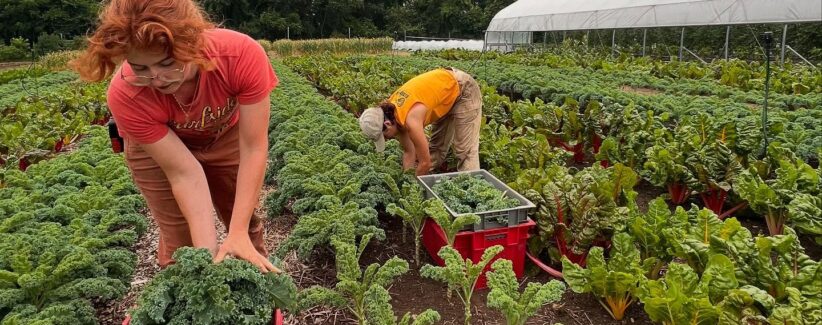What The 2025 Greater Boston Food Bank Hunger Report Means For Gaining Ground’s Work

A new report from the Greater Boston Food Bank (GBFB) paints a sobering picture of hunger across our state. As of 2024, food insecurity among Massachusetts households has reached 37%, a sharp increase from 17% in 2019. That’s more than 1 million households across the Commonwealth struggling to reliably feed themselves and their families with balanced, nutrient-dense meals. These families are often forced to make impossible choices between paying for food, housing, healthcare, transportation, or other basic needs.
At Gaining Ground, we know that everything from physical health to childhood education to emotional wellbeing starts with food. When we nourish those most in need, we’re not only filling plates; we’re helping to create systems of dignity, care, and resilience. We work with more than 15 community organizations throughout Greater Boston and Central Massachusetts, including emergency shelters, community clinics, and housing nonprofits, many of whom are seeing the demand for food rise year after year.
The GBFB report outlines how the landscape of food insecurity has changed, not only in scope but in depth. More than 650,000 households now report “very low food security,” a condition where individuals are not just worried about their next meal but are routinely skipping meals or going entire days without eating. Disparities persist across racial, ethnic, and social groups, with food insecurity rates reaching 62% among Hispanic households and 46% among Black households. LGBTQ+ individuals, seniors, and veterans are also disproportionately affected.
Nutrition security is another growing concern. According to the report, 62% of food-insecure households in Massachusetts struggle to access healthy foods. In the face of high grocery prices, many families rely on inexpensive, processed options. That’s where farms like Gaining Ground step in, providing fresh produce that not only fills stomachs but supports long-term health.
The impacts of food insecurity go beyond hunger. Adults and children in food-insecure households report higher rates of chronic health conditions like diabetes, asthma, and depression, and are more likely to miss work, school, and medical appointments. In total, food insecurity is estimated to cost the state up to $1.3 billion annually in Medicaid-related emergency room visits and hospitalizations.
Despite these challenges, the GBFB report also highlights solutions that are working. Programs like SNAP, WIC, school meals, and the Massachusetts Emergency Food Assistance Program (MEFAP) are proven to reduce hunger and improve health outcomes. And charitable food programs, like those supported by Gaining Ground remain a critical part of the solution.
To read the full report, visit www.gbfb.org/data.